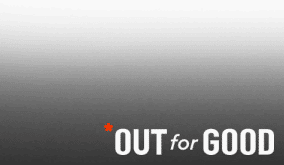Pop music might sound a lot like gay rights, but the actual stage often only offers room for heteronormative artists.
In Latin America, it’s even harder for unabashedly queer Latinx pop stars to thrive. And while it’s easy to root for the hunky, shirtless Ricky Martin and Pablo Alboráns of the world, our Latina queer/ally ladies deserve love too. So it’s time to learn the names of women who’ve weaponized their music to blur the lines between entertainment and resistance.
Related: Ricky Martin works up a steam in the shower, and the bathtub
You might just find yourself updating your sex playlist.
How about we take this to the next level?
Our newsletter is like a refreshing cocktail (or mocktail) of LGBTQ+ entertainment and pop culture, served up with a side of eye-candy.
Anitta
Arguably Brazil’s biggest star, Anitta has become to the Latinx bisexual community what Ricky Martin was for the gays. Besides her name being decorated with awards globally, Anitta vocally advocates for equality, especially in her native country. But, more importantly, her music is twerk-friendly for all the bottoms trying to lure tops at the club. The Rio-born singer leads by example in her single “Evolver” from her latest album released this year, which has over 180,000 million streams on Spotify.
Natalia Jimenez
If you don’t know Grammy award-winning artist Natalia Jimenez, you need to start sleeping with more Latin guys and request that they create a playlist for the occasion. Learning is fun! The Spanish/Portuguese singer-songwriter doesn’t identify as queer herself, but that didn’t stop her from serenading a surprise lesbian proposal during her concert back in 2015. She sang “Por Ser Tu Mujer” (To Be Your Woman), which proves the best artists don’t need to use pronouns in their music to be relatable. It’s always more fun to let others fill in the blank.
Pabllo Vittar
Brazilian songbird Pabllo Vittar sings gay glory in three languages (English, Spanish, Portuguese) and switches effortlessly in her music. Aside from delivering music catering to our queer dreams, Vittar rose to fame as a beloved drag queen in the LGBTQ community. In fact, drag enthusiasts might lose their wigs to learn that Rupaul is only the second most followed queen on social media. Vittar broke queer records when her song “Sua Cara” (with Major Lazor featuring fellow queer songstress Anitta) was nominated for a Latin Grammy, becoming the first Grammy-nominated drag queen in history.
Gloria Trevi
While Shakira’s hips might not lie, celebrated (and infamous) Mexican sensation Gloria Trevi’s mouth has never shied away from speaking against the status quo. She rose to fame in the 1990s for perpetually dancing with controversy, wearing outlandish looks, and singing all the songs that would make your parents immediately turn off the radio. In her home country’s conservative machista culture, Trevi pioneered the way for Latin unconventional artists to stop giving a f*ck. She naturally developed a devoted queer fanbase, willing to support her even after her release from prison in 2004. Trevi and her then-music manager Sergio Andrade had been charged with luring teenage singers with promises of stardom, then turning them into sex slaves. This level of messiness was even too much for the gays, but after a controversial trial and serving four years in prison, charges were dropped against Trevi. She survived her predator of a manager and tabloids determined to watch her fail, promptly returning to work. One of her post-incarceration hits, “Todos Me Miran,” was revealed to be inspired after Trevi listened to a friend describe being ostracized from his family for being gay as a teen.
Niña Dioz
While gay Latina pop stars are uncommon, lesbian rappers are like finding poppers in a haystack. A queer woman in hip hop, Niña Dioz knows the struggles of trying to make it in an industry that constantly labels you, whether as too hip or too pop. Yet, her music transcends boxes that could be so easily checked off, and Dioz’s authenticity to herself rose her to fame in her hometown of Monterrey, Mexico. The lesbians were the first group of people to advocate you can’t change the gays (nor want to!), so we love to see this unbothered Latinx woman spilling hits on her haters, or as she raps in “Tambalea,” Soy la gota que derramó el vaso (I’m the last drop that spilled the glass).















































CatholicXXX
Don’t you mean “latinx”? >.>
Romulus
If you speak Spanish and look for the ultimate gay anthem, check out A quien le importa by Fangoria.
And Bagno a mezzanotte by Elodie is a recent Italian entry and probably the most seductive video ever made for any gender and sexual orientation.
pepelos77
In the case of Gloria Trevi, the charges weren’t dropped, she was acquitted at her trial. The girls who were accusing Gloria’s manager, Sergio Andrade, had claimed on tv that Gloria was one of his recruiters, however,once everything went to trial the same girls were changing their statement multiple times and each time refused to blamed Gloria as an agressor, signed their statements each time in front of a judge but once they left the court room, they will blame her and not the manager about everything.
Eventually, a report came out showing those girls were getting paid up to $5,000 per TV interview by Television Azteca, Patty Chapoy(mexican tabloid journalist from TV Azteca) is the mastermind behind the whole shit show as payback. Gloria had refused to sign an exclusivity contract with them and instead signed an exclusivity contract with Televisa.
In many latin american countires the law is you’re guilty until proven inocent. That is why Gloria spent 4 years, 10 months and 22 days in a holding cell until the end of her trial.